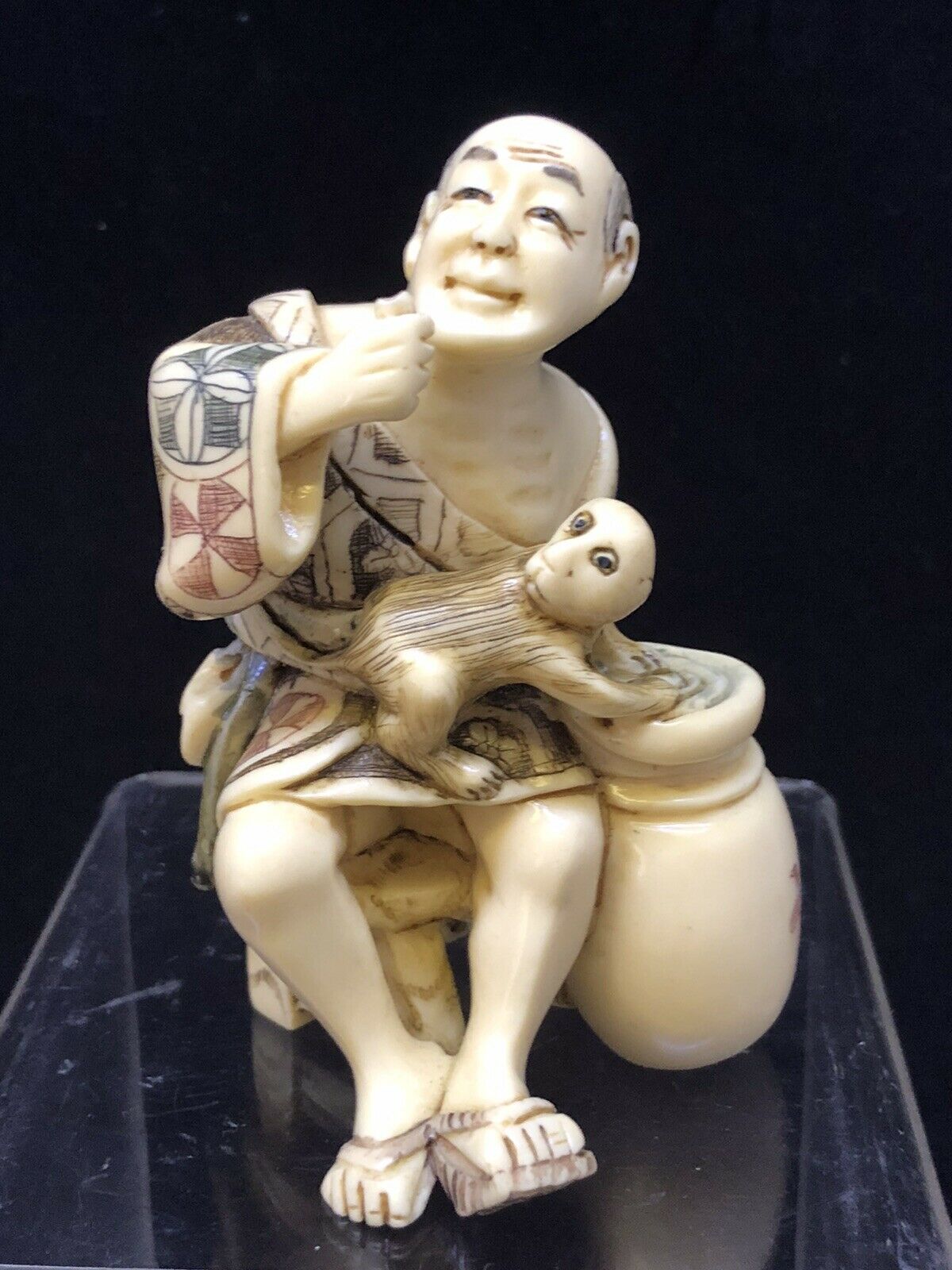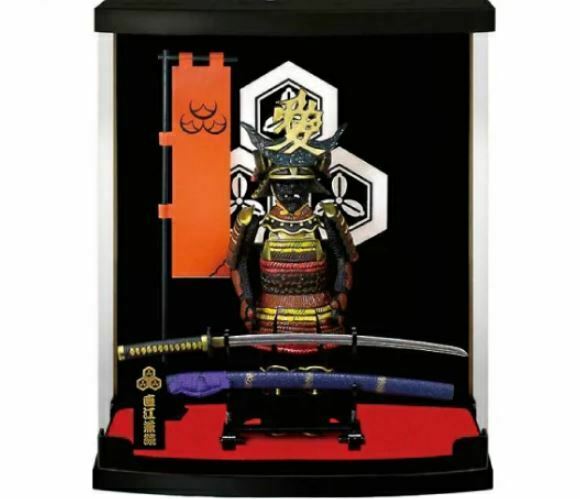-40%
SEVEN LUCKY GODS OF JAPAN WALL HANGING DETAILED HAND PAINTED CERAMIC HEADS
$ 18.48
- Description
- Size Guide
Description
A little history lesson first, courtesy of Wikipedia ...In Japanese mythology, the Seven Lucky gods or Seven gods of Fortune are believed to grant good luck and are often represented in netsuke and in artworks.
They all began as remote and impersonal gods, but gradually became much closer canonical figures for certain professions and Japanese arts. During the course of their history, the mutual influence between gods has created confusion about which of them was the patron of certain professions. The worship of this group of gods is also due to the importance of the number seven in Japan, supposedly a signifier of good luck.
These gods have been recognized as such for over a thousand years. In the beginning, these gods were worshiped by merchants, as Ebisu and Daikokuten were gods of business and trade.
Subsequently, the other classes of Japanese society looked for other gods that could correspond with their professions: Benzaiten as the patron of the arts, Fukurokuju as the patron of the sciences, and so on.
Ebisu:
From the period of the gods Izanami and Izanagi, Ebisu is the only one whose origins are purely Japanese. He is the god of prosperity and wealth in business, and of plenitude and abundance in crops, cereals and food in general. He is the patron of fishermen and therefore is represented with fishermen's costumes.
Daikokuten:
The god of commerce and prosperity, and he is sometimes considered the patron of cooks, farmers and bankers, and a protector of crops. He is also considered a demon hunter − legend says that the god Daikokuten hung a sacred talisman on the branch of a tree in his garden and, by using this as a trap, he was able to catch a demon. This god is characterized by his smile, by his short legs and by the hat on his head.
Bishamonten:
Origins can be traced back to Hinduism, but he has been adopted into Japanese culture. He comes from the Hindu god Kubera and is also known by the name "Vaisravana".
He is the god of fortune in war and battles, also associated with authority and dignity. He is the protector of those who follow the rules and behave appropriately. As the patron of fighters, he is represented dressed in armour and a helmet.
Benzaiten:
Her origin is found in Hinduism, as she comes from the Hindu goddess Saraswati. She is the only female Fukujin in the modern grouping, and may be named in various ways: Benzaiten, Benten, Bentensama, or Benzaitennyo. When she was adapted from Buddhism, she was given the attributes of financial fortune, talent, beauty and music among others. She is represented as a smart, beautiful woman with all the aforementioned attributes. She is the patron of artists, writers, dancers, and geisha, among others.
Jurōjin:
Considered the incarnation of the southern pole star, Juroujin is the god of the elderly and of longevity in Japanese Buddhist mythology. It is said that the legendary Juroujin is based on a real person who lived in ancient times. He was approximately 1.82 meters tall with a very long head. Besides his distinctive skull, he is represented with a long white beard.
Hotei:
The god of fortune, guardian of children, patron of diviners and barmen, and also the god of popularity. He is depicted as a fat, smiling, bald man with a curly moustache. He always appears half-naked, as his clothes are not wide enough to cover his enormous belly. He blessed the Chinese, and they nicknamed him "Cho-Tei-Shi" or "Ho-Tei-Shi", which means ‘bag of old clothes’.
Fukurokuju:
Also has his origins in China. It is believed that he used to be a hermit during the Chinese Song dynasty, distinguished for being a reincarnation of the Taoist god Hsuan-wu. He is the god of wisdom, luck, longevity, wealth and happiness. This god receives certain credits, such as being one of the Chinese philosophers who could live without eating (breatharian). Moreover, he is the only god who was said to have the ability to resurrect the dead. Fukurokuju is characterized by the size of his head, being almost as large as the size of his whole body.
Kichijōten (sometimes omitted)
:
a Fukujin goddess, also known as Kisshōten or Kisshoutennyo. She is adapted via Buddhism from the Hindu goddess Lakshmi. Kisshōten has the traits of beauty, happiness, and fertility. In the 1783 edition of the Butsuzōzui compendium, Kichijōten replaces Fukurokuju as one of the seven Fukujin. When Kichijōten replaces Fukurokuju, and Daikoku is regarded in feminine form, all three of the Hindu Tridevi goddesses are then represented among the seven Fukujin.
And now on to this listing ...
This listing is for a wall hanging depicting heads of the seven lucky gods of Japan. The heads are molded ceramic, reflect minute detail, and are hand painted. I'm sure the paper labels next to each head, as well as the explanatory label on the back, provide the names and information, but I can't read Japanese.
Measures 6 3/4" square.
No damage at all. There is a single small jingle bell on each side, and one of them shows more tarnish than the other.
If you are a collector of Japanese mythology items, this will make a fine addition to your collection. Will be wrapped with care and shipped with GOBS of packing material!
I do not accept returns. Please examine the photos and description carefully, and ask questions if you are unsure.
ABSOLUTELY NO RETURNS OR EXCHANGES
.











